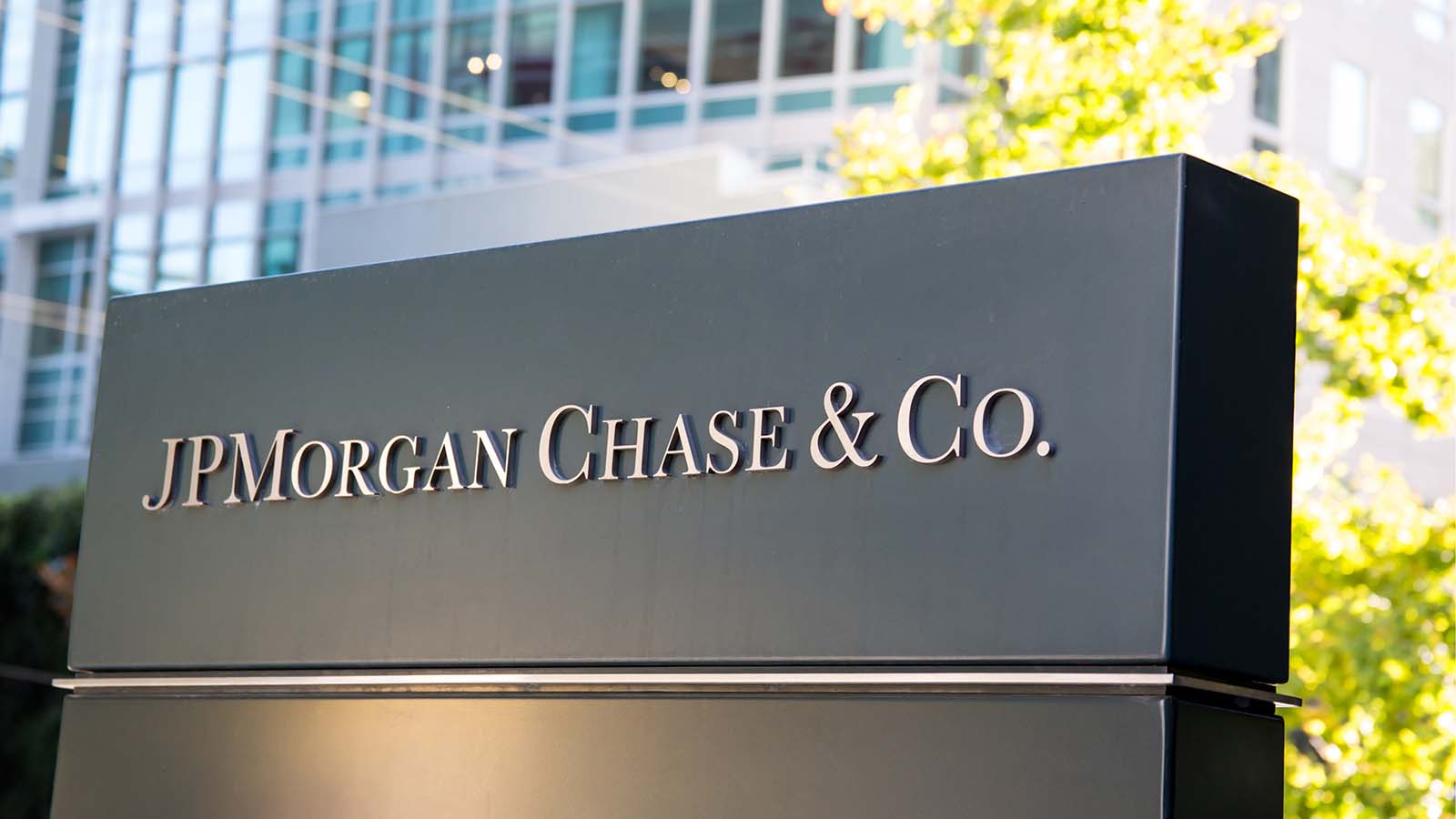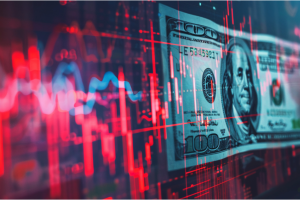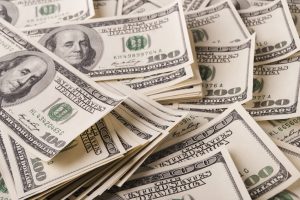
The trillion-dollar market cap club in the United States is an exclusive one currently dominated by tech. Apple (NASDAQ:AAPL). Microsoft (NASDAQ:MSFT). Google and YouTube owner Alphabet (NASDAQ:GOOG, NASDAQ:GOOGL). Amazon (NASDAQ:AMZN). Nvidia (NASDAQ:NVDA). Mark Zuckerberg’s Meta Platforms (NASDAQ:META) and Elon Musk’s Tesla (NASDAQ:TSLA) were briefly members as well. But there’s one mega bank that could eventually join the 12-zeros club: Jamie Dimon’s JPMorgan Chase (NYSE:JPM).
Sure, JPM has a bit of a ways to go before it gets to $1 trillion. Its current market cap is just north of $400 billion. But that’s nearly twice as much as the valuation of Industrial and Commercial Bank of China (OTCMKTS:IDCBY) and more than double the market cap of Chase’s closest U.S. competitor Bank of America (NYSE:BAC).
JPMorgan Chase’s stock has been a steady performer over the past decade, gaining nearly 175%. That’s better than the S&P 500 and almost double the return of its big bank peers in the Financial Select Sector SPDR Fund (NYSEARCA:XLF). So, there’s definitely reason to believe that Chase could beat other banks to $1 trillion.
JPM Could Become the Next Trillion-Dollar Company by 2030
In fact, an analyst at one of JPM’s top Wall Street rivals even predicted earlier this year that JPMorgan Chase may reach the trillion-dollar milestone by 2030.
Morgan Stanley’s Betsy Graseck called the bank “an underappreciated rate play” in a report in late February. She argued that if the economy avoids a recession and instead enters a so-called soft landing, then the Federal Reserve may keep interest rates higher for longer.
That would mean that long-term Treasury yields would remain elevated, which could boost JPM’s net interest income. JPM may also benefit from increased fees on credit cards, mortgage underwriting and investment banking. Those are some of the reasons Graseck thinks Chase could surpass the trillion-dollar threshold within the next decade.
Analysts are impressed by how JPMorgan Chase has continued to be the leader of the big banks — no matter what’s happening with the market and economy.
“As so often seems to be the case during bank earnings season, JPM started from the pole position and seemed to quickly widen its lead over the rest of the pack and investor expectations as well,” said Oppenheimer analyst Chris Kotowski in a report following JPM’s third-quarter results earlier this month.
Kotowski raised his near-term price target on JPM after earnings, from $215 to $233 a share. That’s the highest target on the Street for JPM and is about 60% above the price it trades at now. At $233, JPMorgan Chase would have a market cap of about $685 billion based on the current share count. JPM would need to climb another 46%, to about $341 a share, to reach $1 trillion.
That may seem like a lofty goal, but it could be doable.
JPMorgan Chase has thrived for the past two decades, even during times of intense financial turmoil such as the 2008 credit crisis, the 2020 pandemic and the regional banking meltdown of earlier this year. Thanks to its strong balance sheet and lucrative deposit base, JPM has often been able to step in during times of stress and buy (or bail out) struggling rivals on the cheap, such as Bear Stearns and Washington Mutual in 2008 and First Republic Bank this year.
And even though Dimon has started to sound a bit gloomy, saying in the October earnings release that “this may be the most dangerous time the world has seen in decades” due to the Russia-Ukraine and Israel-Hamas wars, investors can take heart that Dimon will be around for a bit longer to lead the bank through this tumult. The 67-year-old Dimon, who has been Chase’s CEO since December 2005, doesn’t sound like someone who plans to retire anytime soon.
“I’m not going to play golf,” Dimon quipped when asked by an analyst during the bank’s investor day in May about whether Dimon still has the same intensity to come to work every day. What’s more, Dimon was awarded a retention bonus by the bank’s board of 1.5 million stock options in 2021. But the earliest Dimon can exercise them is July 2026…and this “vesting is subject to continuous leadership” at the bank.
So don’t be surprised to see Dimon still at the helm of JPMorgan Chase if the bank eventually reaches the trillion-dollar market cap mark sometime within the next few years.
The Bottom Line on JPM Stock
So, what should investors do? JPMorgan Chase likely will continue to outperform its rivals as long as Dimon is CEO. And there’s a good chance that his eventual successor will not make any major changes.
What’s more, the bank is trading for less than 10 times 2024 earnings estimates. This makes it a bargain compared to the broader market. And remember, the bank’s market value is currently a little more than $400 billion. So JPM stock bulls who buy and hold now would wind up with a more than 145% gain if the company winds up reaching $1 trillion.
As of this writing, Paul R. La Monica did not hold (either directly or indirectly) any positions in the securities mentioned in this article. The opinions expressed in this article are those of the writer, subject to the InvestorPlace.com Publishing Guidelines.





